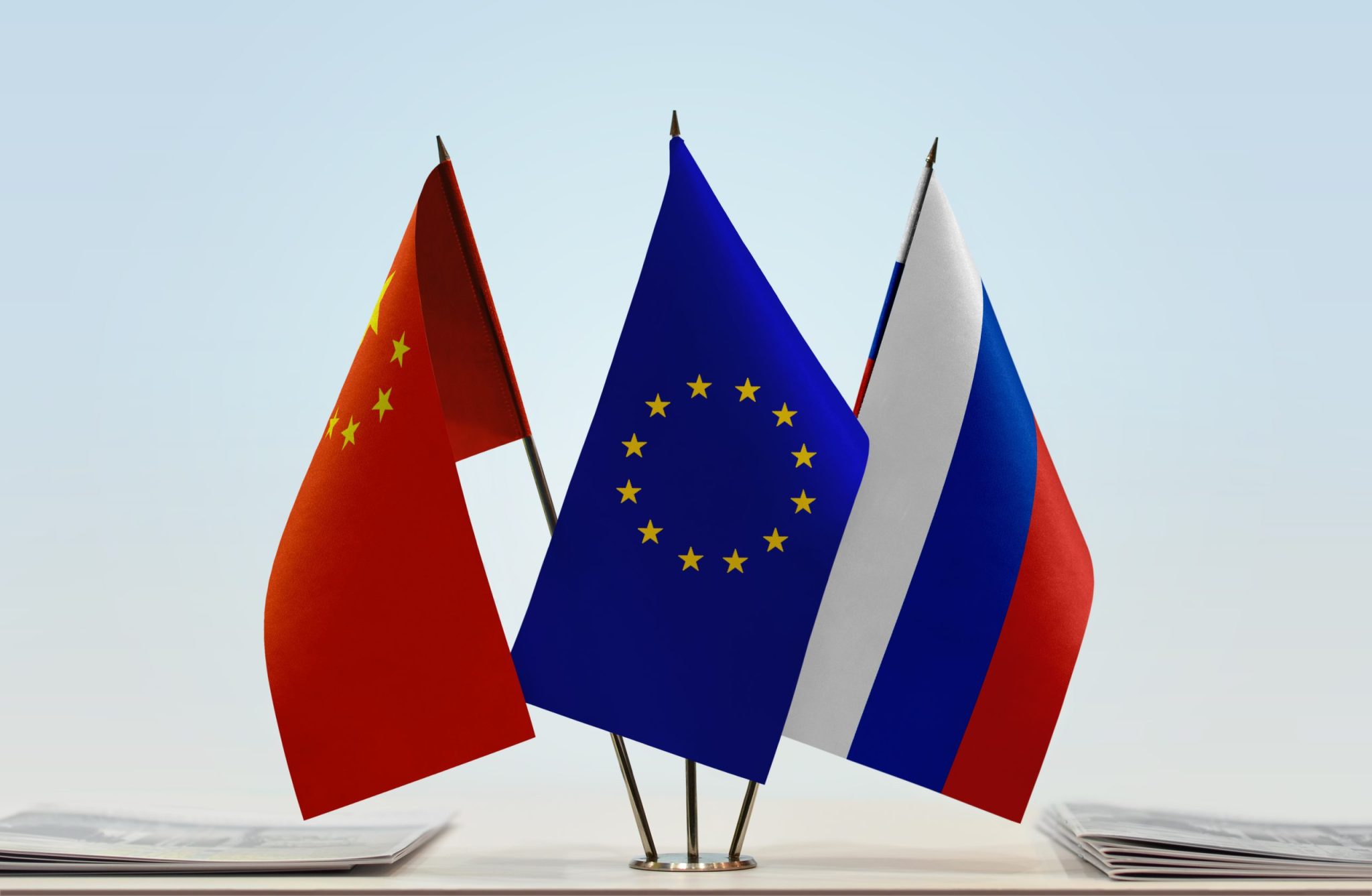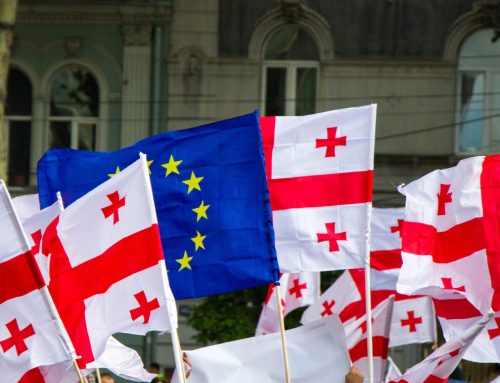Often criticized for their lack of mettle in combatting foreign interference, European institutions have shown signs of increased combativeness in recent weeks. A whole bevy of cash-for-influence, election interference, and espionage cases have been prominently thrust in the public eye at EU and member state levels. However, with just a few weeks to go until the European Parliament election, real consequences must follow for this spike in attention and focus to be meaningful in the long-term. Europe must recognize the interference threat for what it is and act accordingly.
Brazen Attacks
Foreign interference is tragically but finally in the spotlight again. Indeed, the last 18 months have seen a spate of scandals involving foreign powers seeking influence in the EU bubble and national capitals.
Things erupted in spectacular fashion in late 2022, with the so-called ‘Qatargate’, one of the biggest graft scandals in the EU in decades, which brought to light serious allegations that Qatar, Morocco, and Mauritania had sought to buy influence in the European Parliament, most notably relating to parliamentary resolutions condemning their human rights record.
Then, last October, a Serbian national linked to Russia’s FSB intelligence agency visited the European Parliament as part of the Kremlin’s efforts to infiltrate EU institutions and undermine support for Ukraine there. In December, the Financial Times and a number of other outlets reported on a former federal lawmaker from the Belgian far-right Vlaams Belang party who had allegedly worked with the People’s Republic of China’s (PRC) intelligence for years. A PRC operative asked the lawmaker to attack a researcher who criticized Beijing’s repressive policies in Xinjiang, to disrupt a conference on Taiwan, and to promote talking points around the PRC’s response to COVID-19.
The year 2024 began with investigative outlet The Insider revealing that Latvian EU parliamentarian Tatjana Zdanoka may have served as an asset for Russian intelligence for more than two decades. Hot on the heels of that, in March, Czech authorities dismantled a Prague-based Russian propaganda network that reportedly used the pro-Russia website ‘Voice of Europe’ as a vehicle to pay politicians from several European countries, including Germany, France, Poland, Belgium, the Netherlands and Hungary, to disseminate pro-Kremlin narratives about Ukraine and influence public opinion before June’s EU elections. Voice of Europe was covertly financed by former pro-Russian Ukrainian lawmaker Viktor Medvedchuk, who is living in exile in Russia and is a close ally of Russian President Vladimir Putin.
In early April, Sweden expelled a Chinese journalist, who it deemed posed a threat to national security. Shortly thereafter, German public prosecutors ordered the arrest of a German national who worked as an aide to European Parliament lawmaker and top candidate of the far-right Alternative for Germany (AfD) party Maximilian Krah on suspicion of sharing sensitive information about European Parliament negotiations and decisions with PRC intelligence. This spy scandal is not AfD’s only involvement allegedly working on behalf of foreign governments. In February, media
In quick succession, British authorities charged two of their nationals, including a parliamentary researcher for a prominent lawmaker in the governing Conservative Party, with breaching the Official Secrets Act by allegedly passing ‘prejudicial information’ to the PRC. These revelations coincided with another high-profile spying case coming to light in Germany, where several arrests took place. In particular, three people stood accused of trying to transfer sensitive military information and technology to Beijing.
Encouraging Responses, but There is More to Do
Although many cases have surfaced in recent months, Russia and the PRC have been interfering in European democracies for years. In the EU, ASD’s Authoritarian Interference Tracker contains more than 100 cases of PRC interference, and more than 200 cases of Russian interference over the past twenty years alone.
Connecting the dots across all these recent episodes therefore underscores not so much that bad actors like the PRC and Russia have stepped up their interference game, but that Europe has upped the ante in terms of its pushback. Supporting this assertion is the fact that recent revelations and arrests have taken place all over the continent, including in countries habitually reluctant to confront Moscow or Beijing.
Indeed, European authorities’ responses to these recently unearthed instances of foreign interference have been encouraging. ‘Qatargate’ led to several high-profile In April 2024, the Belgian prime minister and Czech president called on EU institutions to pass new sanctions to counter Russian malign influence in the upcoming elections.
Part of the reason for the increased pushback can undoubtedly be traced to Russia’s brutal war in Ukraine. The Kremlin’s brazen aggression has dispelled European fears about damaging ties with Moscow and boosted appetite for calling out and combating the Kremlin’s expansive malign interference campaigns. In addition, as the cases in Belgium and Germany illustrate, there is a growing recognition of PRC activities not just in the expected areas of economic, technological, or commercial subterfuge, but also in influencing democratic processes—a domain traditionally associated with Moscow.
Still, on the policy front, Europe has a long way to go to effectively shutter foreign interference in its democratic societies and institutions. In Belgium, for instance, neither espionage nor foreign interference is a crime under a penal code that dates back to the 19th century. This means that the far-right politician that reportedly colluded with PRC intelligence for three years is now only being investigated for corruption.
Similarly, despite steps taken, meaningful gaps remain at the EU level as well. For example, the fate of the Defence of Democracy Package–launched in December 2023 to push back against foreign interference via new transparency requirements for lobbyists and recommendations to strengthen elections in the bloc–remains unclear and likely will not be decided until the next European Commission is in place.
Conclusion
The unearthing of foreign interference cases in Europe that has taken place over the past few months warrants cautious optimism. Yet, many of the campaigns that the press recently reported on had been taking place for months, years, and in some cases decades. The objectives of these campaigns had already been fulfilled, by and large. While the number of reported incidents might seem high, they nevertheless only represent a small fraction of the vast number of mutually reinforcing interference activities. Critically, despite revelations that lay bare ties between certain European political parties and foreign authoritarian powers, many voters still seem willing to lend those parties their ballot. Should these forces and parties gain seats in the June elections, Russian and PRC proxies will likely find new targets of opportunity for their attempts to undermine European democracy.
Above all, these incidents demonstrate that the threat posed by foreign authoritarian actors is not contained by national boundaries. It therefore requires a Europe-wide response to be tackled effectively. No one should expect the road forward to be anything but long and laborious.
The views expressed in GMF publications and commentary are the views of the author alone.






